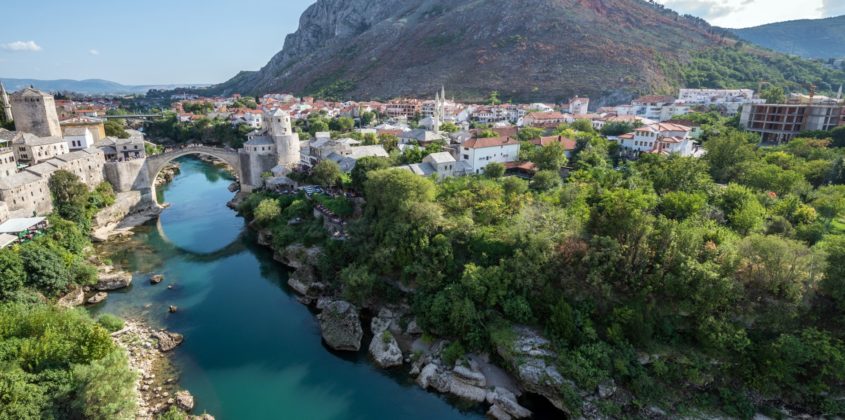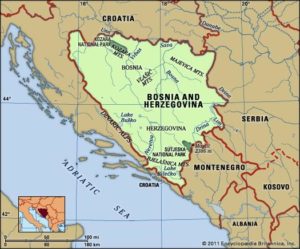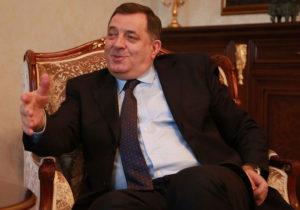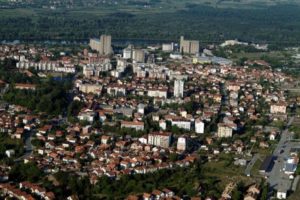Territorial Integrity Of Bosnia And Herzegovina Supported By Moscow

The Dayton Agreement ended the nearly three years of war (1992 to 1995) in Bosnia and Herzegovina and one of the terms of the agreement was territorial integrity. Speaking on the issue, Pyotr Ivantsov, the Russian ambassador to the Balkans said Russia is in support of Bosnia’s territorial integrity.
“We have signed the Dayton Agreement [as a guarantor]. The territorial integrity of Bosnia and Herzegovina is one of the elements of this treaty alongside the quality of all the entities and the three state-constituting nations. We have signed this [treaty], this means that we support the territorial integrity of Bosnia, the development of Bosnia as an independent state.”
Source: Sputnik

According to the ambassador, the borders of Bosnia and Herzegovina can only be changed if the country decides. However, it is no longer news that Russia has a strong interest in Bosnia because of its strategic role in the region.
If Bosnia should join the EU, it would mean that they will also implement the anti-Russia sanctions. It can be recalled that Russia – Bosnia economic relations peaked with the EU sanctions against Russia. This also explains why Russia has been working hard to ensure that the country remains neutral to NATO membership.

Even though NATO has remained unpopular among Serbs because of the series of bombings they carried out during the Bosnian war, there is a strong speculation that the decision of the Bosnia Serbs to remain neutral to NATO membership is influenced by Russia. The Republika Srpska is dominated by Bosnia Serbs and there has to be a consensus among the three autonomous regions of the nation before a proclamation can be made.
Speaking on the possibility of Bosnia becoming a breeding ground for terrorists particularly the Daesh terror group that flee Iraq and Syria following their defeat in those countries, Ivantsov disregarded the possibility of such threat to the Balkan nation.
“Bosnia and Herzegovina is a Muslim state to a significant extent. Islam is the religion of almost a half of the country’s population, but this does not mean that Bosnia and Herzegovina is a hotbed of terrorism. We cooperate with the authorities of Bosnia as a whole and Repubika Srpska particularly to counter the terrorism threat.”
Source: Sputnik
Ivantsov condemned the continued push to get Bosnia and Herzegovina into the stronghold of NATO saying the move will not contribute to strengthening of the country’s security.
“We oppose further expansion of NATO in the Balkans. But this is a sovereign decision of nations and countries. We see there is no unity in Bosnia and Herzegovina in favor of the NATO membership.”
Source: Pulse

After breaking away from Yugoslavia in 1992, Bosnia was thrown into war. The country currently has three autonomous entities; the Croats and Bosniaks dominated Federation of Bosnia and Herzegovina and the Serbian dominated Republika Srpska as well as the Brcko district that is self-governing.
